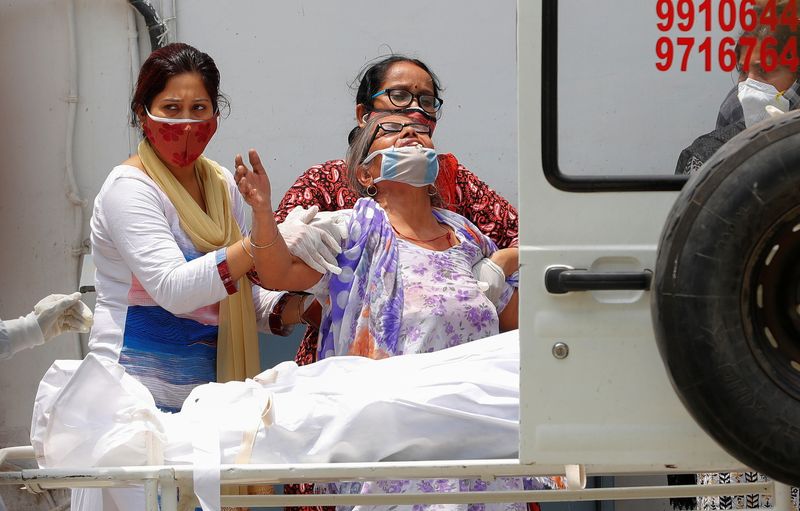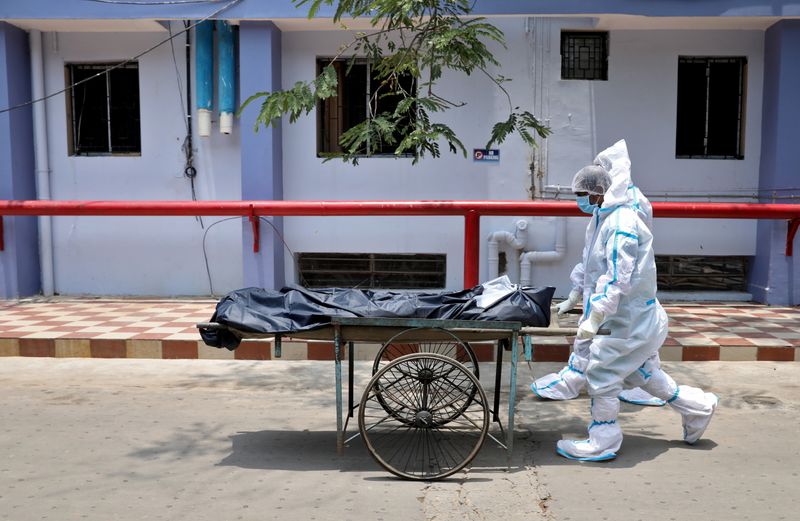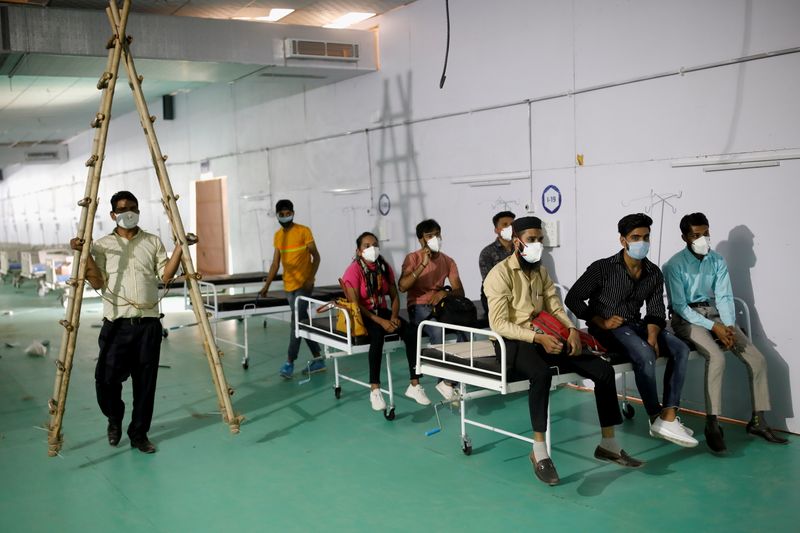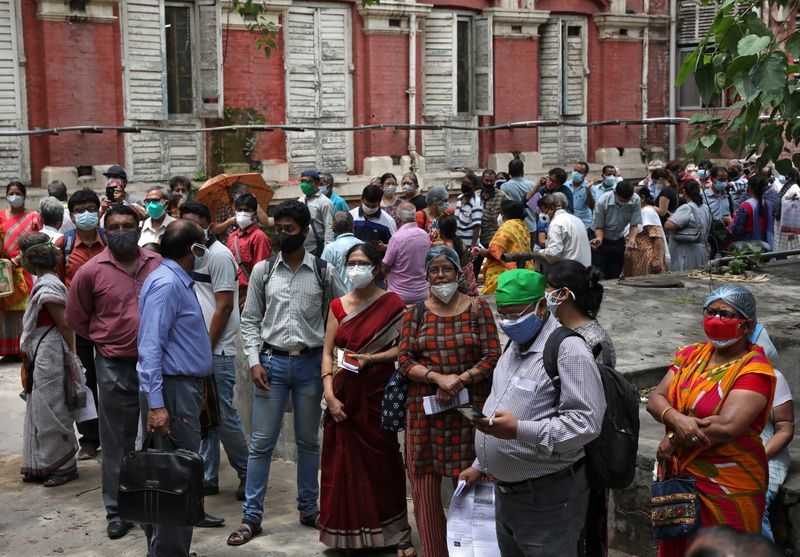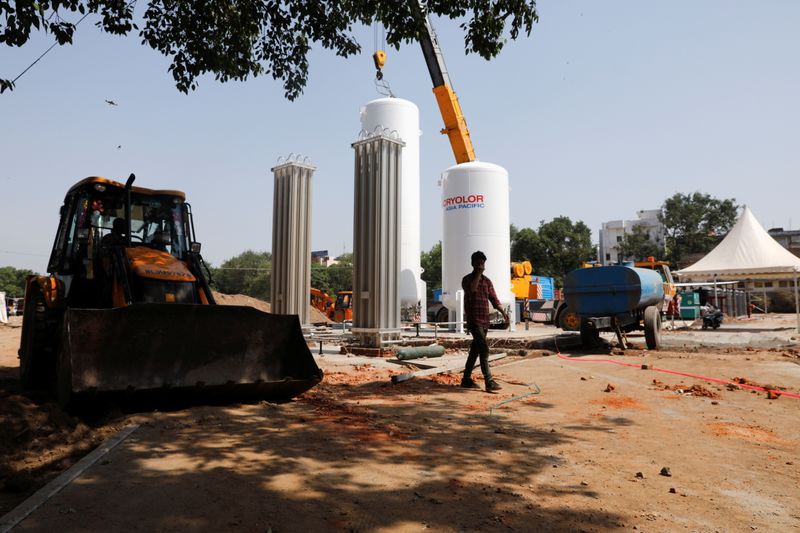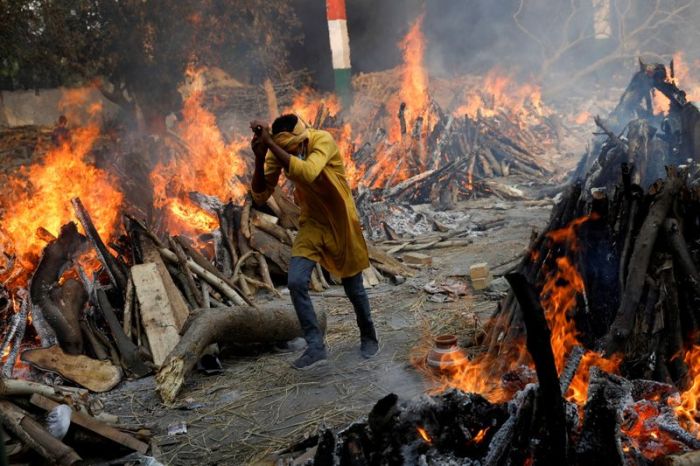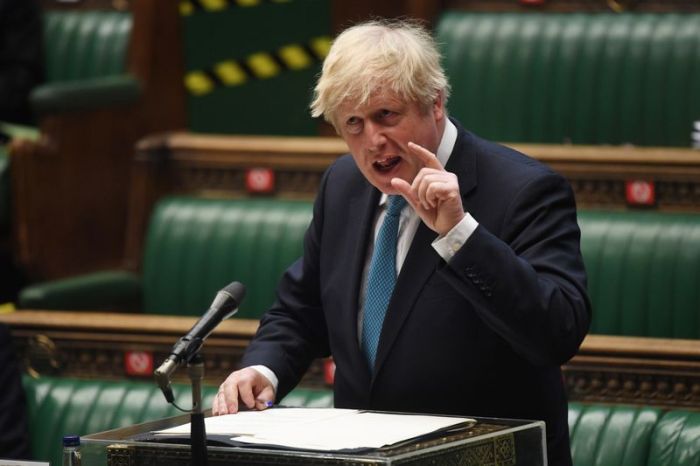NEW DELHI (Reuters) -India’s coronavirus death toll crossed 250,000 on Wednesday in the deadliest 24 hours since the pandemic began, as the disease rampaged through the countryside, leaving families to weep over the dead in rural hospitals or camp in wards to tend the sick.
The second wave erupted in February, inundating hospitals and medical staff, as well as crematoriums and mortuaries.
Experts still cannot say for sure when numbers will peak and concern is growing about the transmissibility of the variant that is driving infections in India and spreading worldwide.
Indian state leaders clamoured for vaccines to stop the second wave and the devastation it has wrought, urging Prime Minister Narendra Modi to stop exporting doses, ramp up production and help them procure urgent supplies from overseas.
“People will die in the same way in the third and fourth waves as they have this time” without more vaccines, Delhi’s Deputy Chief Minister Manish Sisodia told reporters.
Deaths grew by a record 4,205 while infections rose by 348,421 in the 24 hours to Wednesday, taking the tally past 23 million, health ministry data showed. Experts believe the actual numbers could be five to 10 times higher.
Funeral pyres have blazed in city parking lots, and bodies have washed up on the banks of the holy river Ganges, immersed by relatives whose villages were stripped bare of the wood needed for cremations.
Lacking beds, drugs and oxygen, many hospitals in the world’s second-most populous country have been forced to turn away droves of sufferers.
“We seem to be plateauing around 400,000 cases a day,” the Indian Express newspaper quoted virologist Shahid Jameel as saying. “It is still too early to say whether we have reached the peak.”
GLOBAL SPREAD
The country accounts for half of COVID-19 cases and 30% of deaths worldwide, the World Health Organization said. It has designated the B.1.617 variant found there of global concern but said its full impact is not yet clear.
The variant has been detected in six countries in the Americas, the Pan American Health Organisation said, adding that it was worried it was highly transmissible.
Britain, which has also detected the variant, said it is looking at all possible solutions to tackle local surges in cases, while the European Union urged all of its 27 member countries to halt non-essential travel from India to limit its spread.
Daily infections are shooting up in the Indian countryside in comparison to big towns, where they have slowed after last month’s surge, experts say.
More than half the cases this week in the western state of Maharashtra were in rural areas, up from a third a month ago. That share is nearly two-thirds in the most populous, and mainly rural, state of Uttar Pradesh, government data showed.
A pregnant woman was taking care of her husband who had breathing difficulties in a hospital in Bhagalpur in the eastern state of Bihar, which is seeing a case surge its health system could barely have handled at the best of times.
“There is no doctor here, she sleeps the whole night here, taking care of her husband,” the woman’s brother told India Today television.
In a corridor outside, two sons were wailing over the body of their father, saying repeatedly that he could have been saved if only he had been given a bed in an intensive care unit.
At the general hospital in Bijnor, a town in northern Uttar Pradesh, a woman lay in a cot next to a garbage can and medical waste.
“How can someone get treated if the situation is like this?” asked her son, Sudesh Tyagi. “It is a hell out here.”
(Reporting by Anuron Kumar Mitra and Manas Mishra in Bengaluru, Shilpa Jamkhandikar and Aishwarya Nair in Mumbai, Tanvi Mehta in New Delhi, Subrata Nagchoudhary in Kolkata and Stephanie Nebehay in Geneva; Writing by Raju Gopalakrishnan and Philippa Fletcher; Editing by Simon Cameron-Moore, Clarence Fernandez, Mark Heinrich, Giles Elgood and Jonathan Oatis)

